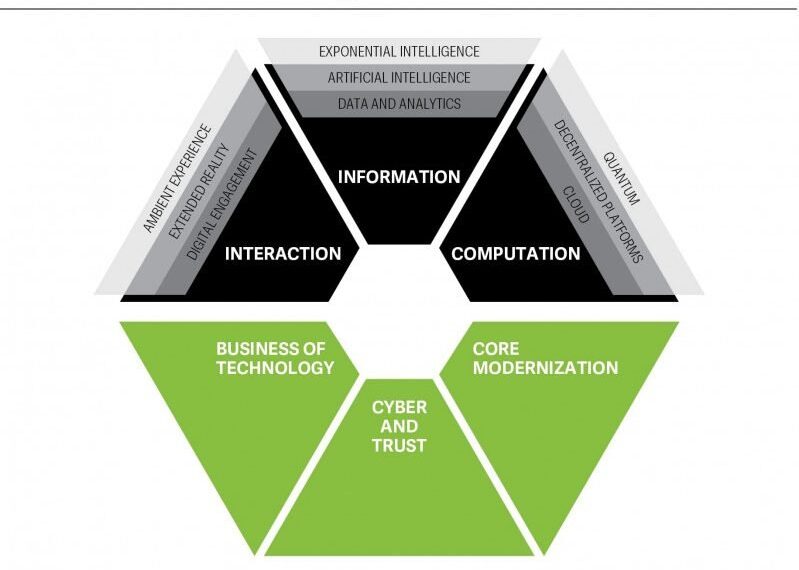Deloitte has released its 14th annual flagship Tech Trends report, outlining the advancement of six macro trends for business transformation over the next 18 to 24 months. The report was informed by Deloitte’s research and global technology expertise across a wide range of sectors like AI, Web3, blockchain, and more.
Affective and Explainable AI
There were many key takeaways from the report, all of which should be considered by business leaders across many industries.
One of the takeaways was that affective AI, which is empathic emotional intelligence, will lead to machines being able to be trained with uniquely human data. They could then be taught to discern and mimic human emotions. Generative AI is also going to play a major role with the increase of creative intelligence that can carry out a wide range of human activities, such as writing poetry and painting pictures.
According to the report, all of this leads to the possible rise of general purpose AI, which is intelligence that has evolved from simple math to polymath. General purpose AI could lead to versatile systems that learn and imitate uniquely human traits.
The Deloitte report also details the importance of opening up to AI, or learning to trust AI systems. AI tools are becoming increasingly standardized, and organizations are realizing that in order to make competitive gains, there must be high confidence that the AI systems will deliver the right analytics and insights.
To achieve this trust, it’s important for AI algorithms to be visible, auditable, and explainable. At the same time, workers should be involved in AI design and output.
The report goes on to detail some of the important aspects of achieving this trust and various other business goals:
- In the future, it will be more important for enterprises to use AI more effectively rather than crafting the best algorithms.
- The key to spurring adoption will be to develop processes that leverage AI in transparent and explainable ways.
- Businesses have a hard time trusting AI with mission-critical tasks. Explainability is one of the biggest differentiations between the successful use of AI at scale and failure to gain returns on AI investment.
- Forward-thinking enterprises are relying on data transparency, algorithmic explainability, and AI reliability.
Other Key Takeaways
There were several other key takeaways in the report. For example, it details how as economic disruption changes business and technology strategies, enterprises will begin drawing on past IT lessons to shape their future plans.
Some of the additional trends in the report are:
- The internet will become immersed with tangible, conversational and virtual interfaces that will manifest in three ways. The first is extended reality that includes a consumer-facing metaverse experience. The second is enterprise simulations with the use of digital twins of our physical assets to prototype and experiment. And the third is augmented workforce experiences across recruiting, productivity, learning, and more to construct business models.
- Cloud management has become complex over the past ten years due to heterogeneous multi cloud deployments. Enterprises are increasingly relying on a common layer of abstraction and automation referred to as metacloud or supercloud to make it more simple. These cross-cloud services help manage operations, governance and security, helping organizations leverage cloud versatility, elasticity, flexibility, and scalability.
- Forward-thinking organizations are developing new IT structures and roles that better align with available talent supply. They prioritize values, cultural fit and aptitude.
- Despite the recent volatility around cryptocurrency, the potential of blockchain and digital assets continues to grow.
The full Deloitte report explores a wide range of technologies including spaceTech, bioTech, neuroTech, roboTech, climateTech, and energyTech. These technologies are being referred to as xTech.
You can read the entire Deloitte Tech Trends report here.
Credit: Source link





















